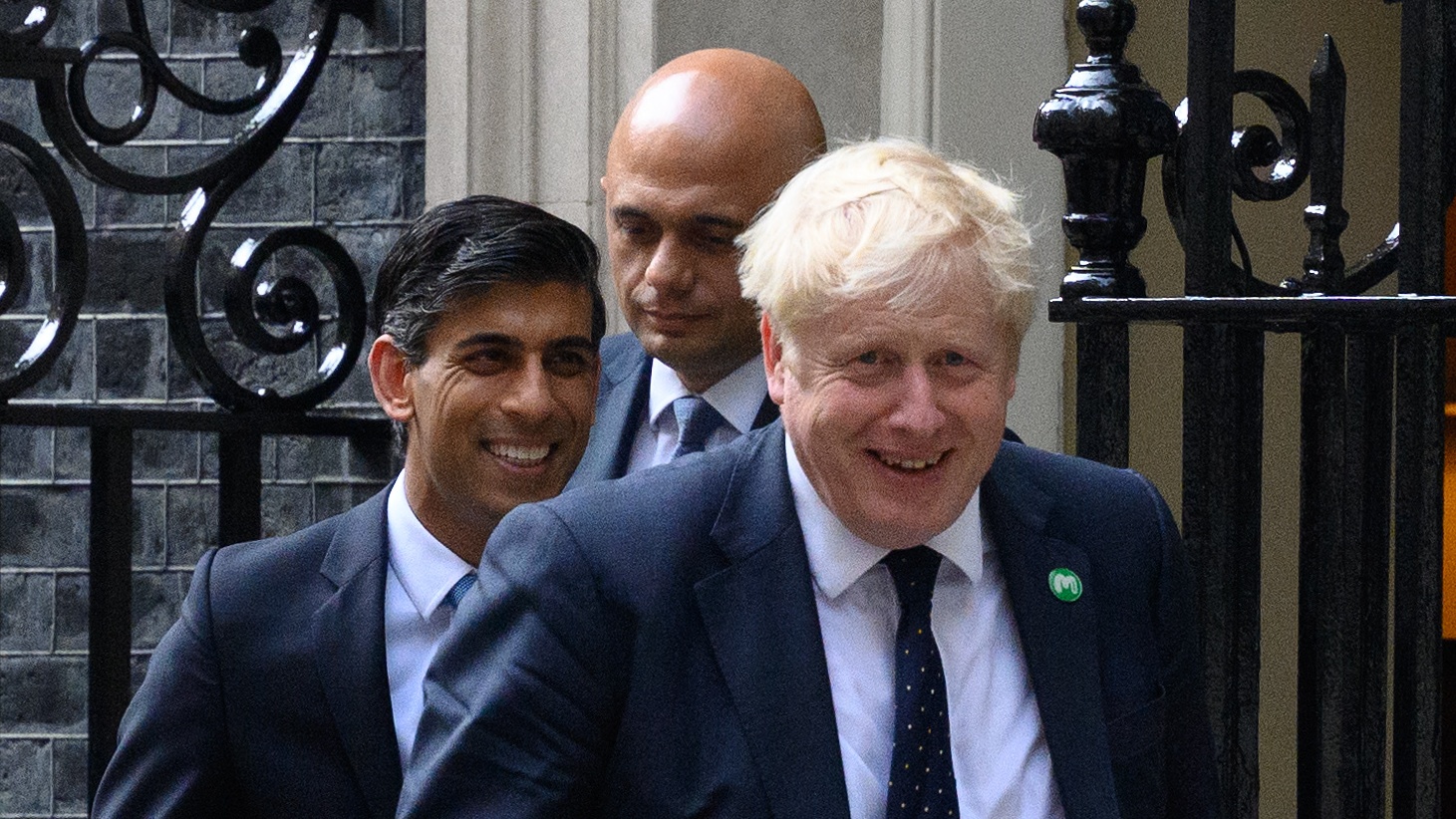What the National Insurance rise means for you
Government defends controversial hit to pay packets

A free daily email with the biggest news stories of the day – and the best features from TheWeek.com
You are now subscribed
Your newsletter sign-up was successful
The tax burden falling on workers and employees increases from today as a controversial increase in National Insurance contributions (NICs) comes into effect.
Employees, businesses and the self-employed will pay an extra 1.25p in the pound. Instead of 12% on earnings up to £50,270, employees will now pay 13.25%. Above that level they will pay 3.25% instead of 2%.
The government rejected widespread calls to to delay or scrap the plan amid the cost-of-living crisis. Labour leader Keir Starmer described it as “the wrong tax at the wrong time” when “people are struggling to pay their bills”. But Health Secretary Sajid Javid told BBC Breakfast the increase was “right and fair”.
The Week
Escape your echo chamber. Get the facts behind the news, plus analysis from multiple perspectives.

Sign up for The Week's Free Newsletters
From our morning news briefing to a weekly Good News Newsletter, get the best of The Week delivered directly to your inbox.
From our morning news briefing to a weekly Good News Newsletter, get the best of The Week delivered directly to your inbox.
Government split
Backbench Tory MPs have long opposed the hike in National Insurance contributions.
In January, Robert Halfon, chair of the education select committee, told the government to “go back to the drawing board”. Backbench MPs Robert Jenrick and Mel Stride also “called for the increase to be delayed”, the BBC said. Jenrick said that 2022 would have been “exceptionally hard” for families even before the planned tax hike.
At a briefing with reporters, a No. 10 spokesperson said in late January that the prime minister and chancellor were “fully committed to introducing the health and social care levy in April”.
After speculation that he might abandon the tax rise, and speculation that he was at odds with his chancellor, the two men confirmed there would be no U-turn. “We must go ahead with the health and care levy,” they wrote, in a Sunday Times article that appeared under both of their names.
A free daily email with the biggest news stories of the day – and the best features from TheWeek.com
It was needed to clear NHS waiting lists and fix long-term problems in social care, they said.
How it works
The tax changes begin today with a rise in National Insurance for employees and employers, before a separate tax on earned income comes in from 2023 - appearing on an employee's payslip as a "Health & Social Care levy".
The increase is a part of “the biggest shake-up of social care in decades”, said The Telegraph. The government is also introducing a new cap of £86,000 for the cost of social care over a lifetime, and people with assets between £20,000 and £100,000 will be eligible for means-tested social care funding for the first time.
Those with savings of less than £20,000 will be eligible to receive fully funded care, while those with savings between £20,000 and £100,000 can get partial support.
Although the new social care reforms will apply only to England, the tax changes will affect the whole of the UK. But the income from the levy will be distributed across the four nations.
According to the government, Scotland, Wales and Northern Ireland will get an extra £1.1bn, £700m and £400m in funding respectively by 2024-25.
“However, health and social care are devolved and differ significantly, meaning issues such as the cap and floor for people’s personal outgoings on care will also vary,” The Guardian reported.
Breaking down the figures
Paying a National Insurance contribution is mandatory if you’re 16 or over and either an employee earning above £184 a week, or self-employed and making a profit of £6,515 or more a year.
From April 2022:
- the current 12% rate on earnings between £9,564 and £50,268 will rise to 13.25%
- the current 2% rate on earnings over £50,268 will rise to 3.25%
- employers will also have to pay more, contributing 15.05% in National Insurance on employees' earnings over £170 per week, up from 13.8% now.
“People who earn under £9,564 don’t have to pay National Insurance or the new levy,” the BBC reported. But unlike National Insurance, the new levy “will also be paid by pensioners who work”, the broadcaster added.
Impact on earners
The hikes mean “millions of Brits will be forking out up to hundreds of pounds extra each year”, said the Daily Mirror.
According to analysis by financial services group Hargreaves Lansdown, this is how the changes will affect take-home earnings:
- £10,000 salary: £52 paid now; £57 with 1.25% increase - £5 extra each year
- £20,000 salary: £1,252 paid now, £1,382 with 1.25% increase - £130 extra each year
- £30,000 salary: £2,452 paid now; £2,707 with 1.25% increase - £255 extra each year
- £40,000 salary: £3,652 paid now; £4,032 with 1.25% increase - £380 extra each year
- £50,000 salary: £4,852 paid now; £5,357 with 1.25% increase - £505 extra each year
A major criticism levelled at the National Insurance hike is that the anything earned above £50,000 is taxed at a rate of just 2% - so the increase will have a proportionally smaller impact on the highest earners.